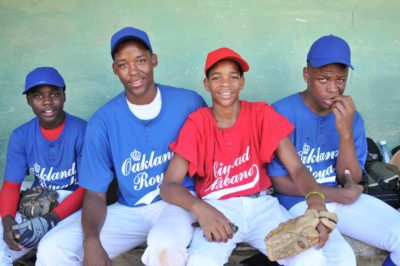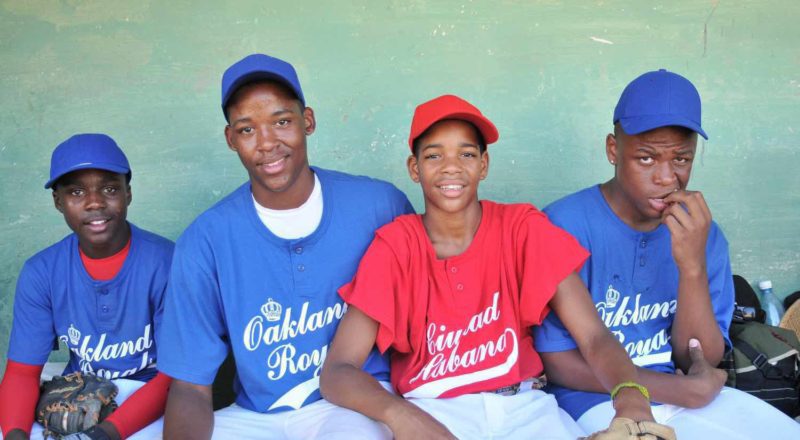REVIEW: Learning the true value of baseball in ‘Ghost Town to Havana’

Ghost Town to Havana, the new documentary playing the African Diaspora International Film Festival in New York City, follows two teams of baseball players who are brought together over their shared love of the competitive sport. One team is located in Havana, Cuba, the other in Oakland, California. The young men on each team live different lives, many of them struggling with issues of family, violence and loss, but they turn to their baseball coaches for inspiration, leadership and direction in life.
Eugene Corr directs the film with a focus on the cultural exchange between the two groups. When the California team, headed by Roscoe Bryant, head to Cuba to face off against the Havana team, headed by Nicolas Reyes, the visit becomes a metaphor for many themes: the possibility of the two countries working together, the sacredness of the sport itself and the value of adult leaders taking young players under their wing.
After spending nearly 90 minutes with these baseball players, the audience learns a lot of information about Bryant and his difficulties. He is a man with a mission, a man who frequently calls upon God to help with his leadership and a man who faces numerous personal obstacles while keeping his team focused on the end goal. He is inspiring, energetic and nonstop, someone with a tenacity for life and a drive to provide opportunity through the game of baseball.
Helpful statistics throughout Ghost Town to Havana clue the audience in to the challenges facing Oakland, its violent streets and the young African-American men of “Ghost Town.” In the wealthier and predominantly white neighborhoods, coaches have an easier time fielding teams, while Bryant is tested with challenge after challenge. He’s not only teaching his “Royals” how to be princes and kings on the baseball diamond. He’s also giving them an outlet to deal with their family issues and the violence they find in their neighborhoods. He requires a lot of them, and in return he’s able to be a father figure and role model.
Reyes is every bit as fascinating, although the documentary keeps him a little more at arm’s length. The audience finds out that the coach is not only dedicated to his team but also his ailing wife and family. By telling his story, the documentarian is able to give some insight into Cuba in the 21st century. This is not a political film per say, but it does allow a window into life in the street, life in the dugout and life with small wages.
Corr attempts to add his own father’s story as a baseball coach to the narrative, connecting the historical example with the successes and setbacks of Reyes and Bryant. More information on the this background would have been appreciated, and I found myself wanting to spend more time getting to know his father’s players, who are now grown and look back fondly on their days of playing baseball in Oakland.
There are moments in Ghost Town to Havana that are truly sad and truly heartwarming. Watching these young men — and the adult men who shepherd them along — gives such a positive picture about the possibility of youth, the power of leadership and the passion for the game.
By John Soltes / Publisher / John@HollywoodSoapbox.com
Ghost Town to Havana (2016) will play the African Diaspora International Film Festival Dec. 8 and 9 at 7:30 p.m. Click here for more information on the venues. Click here for more information on the film, which is directed by Eugene Corr. Rating: 




